Welcome to the Designers of Learning page for Mayfield 2023.
We invite you to use our card set for conversation prompts with peers, for active observation and engagement with your learners, and for creating action plans to shape your own learning environments.
Here we share with you our journey, in building a tool that assists designers and educators to shape learning environments. Through this, we aim to empower educators, and support learning experiences which embrace justice, equity, diversity, and inclusion.
The prompt cards included in this tool provide a framework that can be adapted to unique learning contexts, allowing for the exploration of new and divergent ideas. By encouraging broader conversations considering all users of a teaching space, the cards facilitate a stronger collaborative approach when designing for learning.
Cards are supported by peer-reviewed literature and evidence, providing a solid foundation for the prompts and ideas presented. Additionally, the cards include “fun facts”and catalysers for further research and reading, providing opportunities for educators to deepen their understanding of important issues related to justice, equity, diversity, and inclusion in education. With this set of cards, educators can empower themselves to design effective and engaging learning experiences in the absence of formal design consultation – and outside the limits of formal design projects.
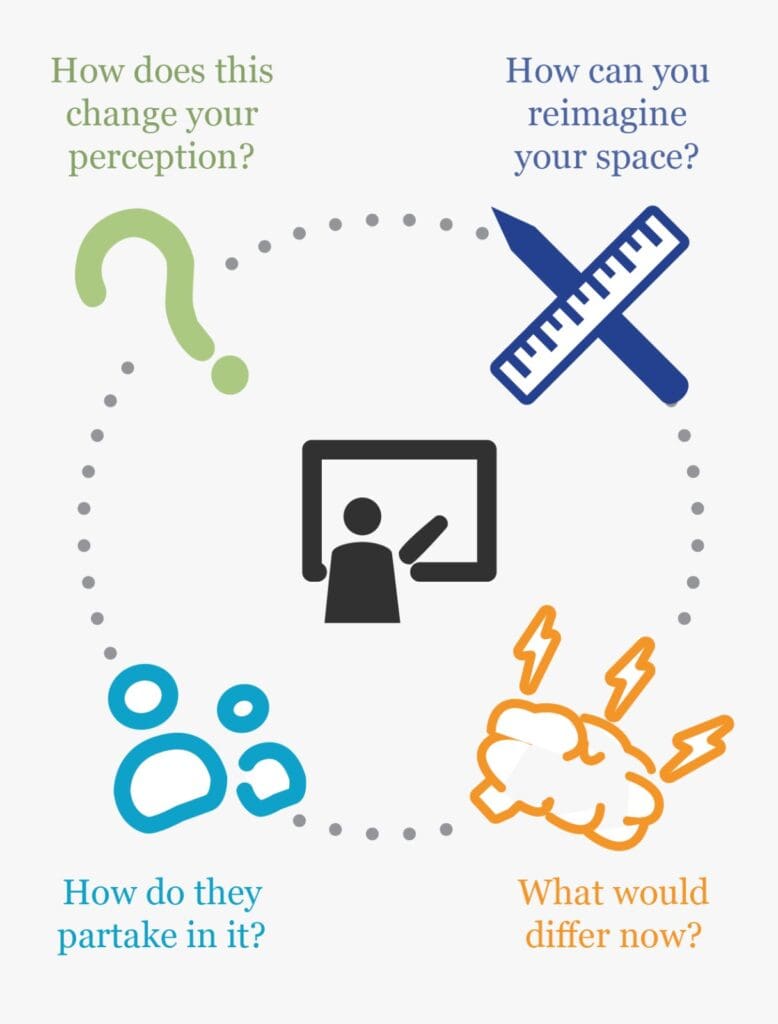
Designers Of Learning
Authentic Engagement Toolkit
Click on the buttons below to use the cards online
Or
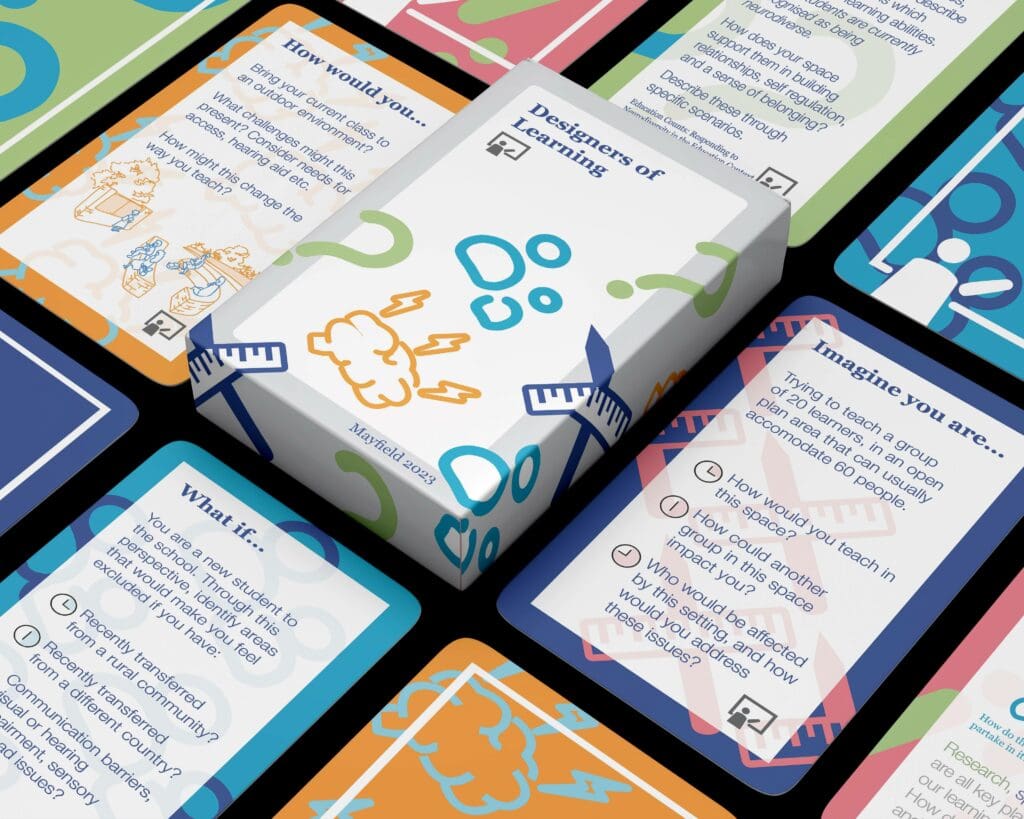
The Tool
These cards are a versatile set of facts, conversation prompts and challenges.
Where applicable, they have tiered prompts for 5min questions, 10mins, and 10min+.
Try using them in your staff meetings, workshops, or just a casual chat while grabbing coffee!
And remember – each card is only as effective as the extent of knowledge gathered, attained and implemented. We strongly recommend following these up with reflections, and class activities or interviews to maximise the participatory aspect for better outcome!
Cards in Action – We’ve Tested Our Tools In The Field
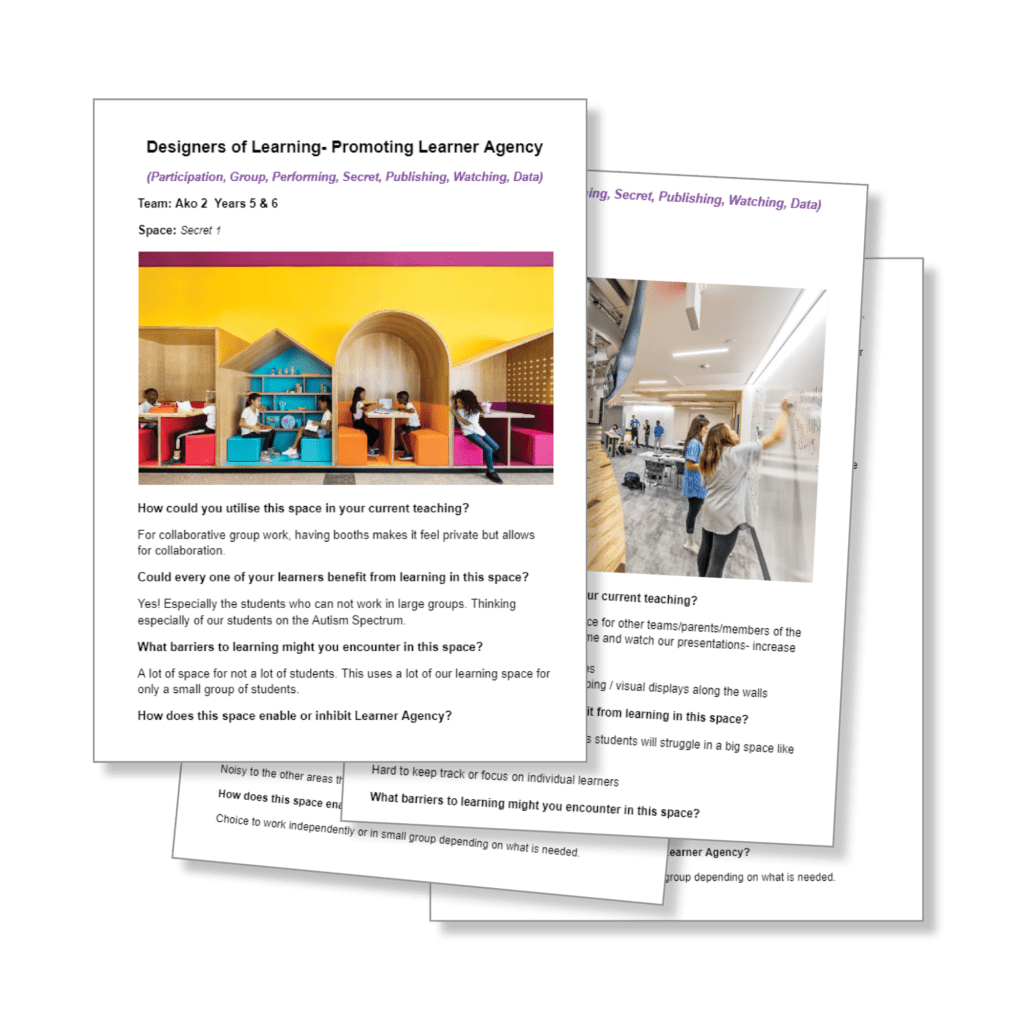
School Workshop 1
“How do spaces promote learner agency?”
Precedents of different innovative learning environments were given to educators alongside a list of questions. Our workshop attendees found this to be quick and simple to organise and keep record. In response to these spatial prompts, main concerns raised were levels of noise, distraction, over-stimulation for students. Key desired aspects of a space for learners included comfort, ease of access and ability to record work, and for educators to have a line of sight to all students.
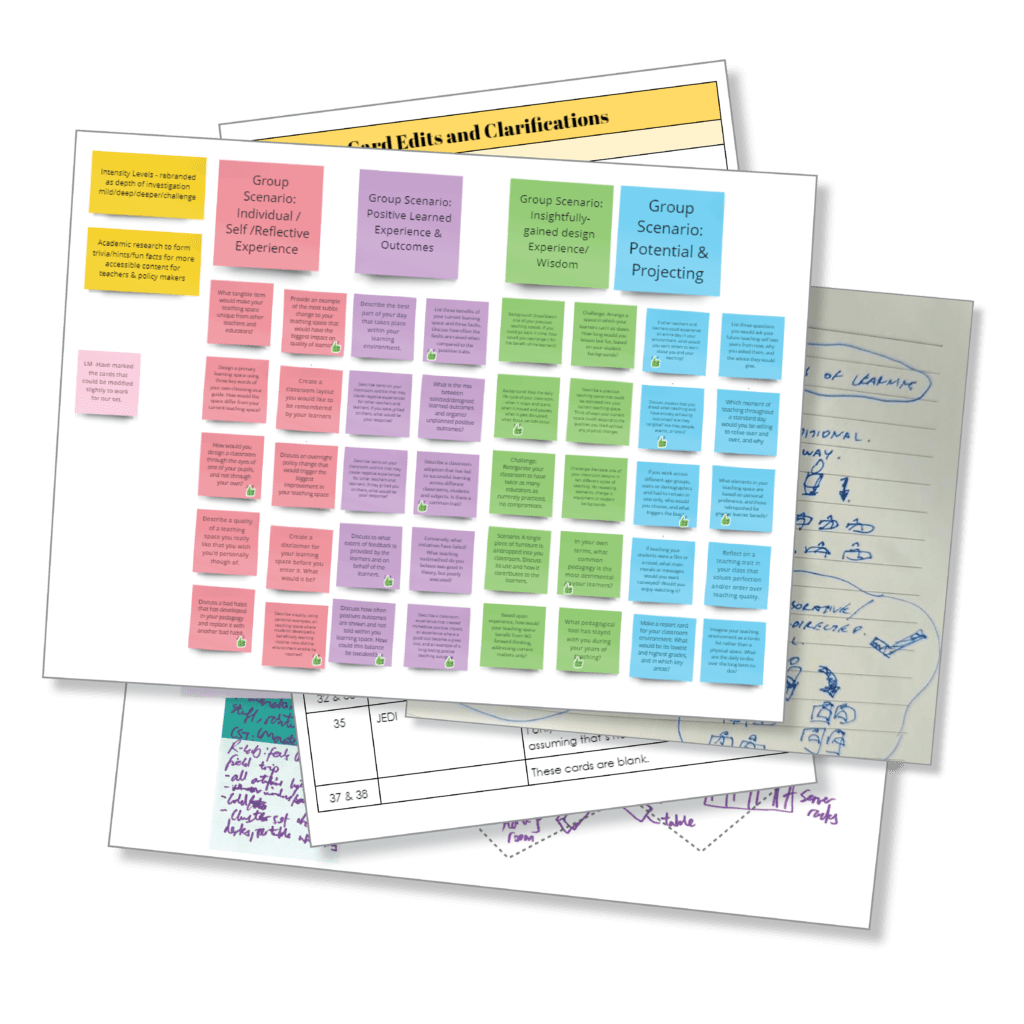
Design Workshop
“How can engagement & participation celebrate JEDI outcomes?”
Drawing from previous co-design sessions with students/educators, an engaging process and a positive lens were central to incorporating JEDI. All attendees advocated for tactile elements – post-it notes, printed materials, things to write on/sketch and shuffle around. Graphic prompts and colours were received well by students and educators alike. Distinctive headings, activity outlines and a workshop template helped in keeping record, as well as explaining and facilitation. Conversations, and a tiered format to gradually dive deeper, eased people into opening up and sharing stories.
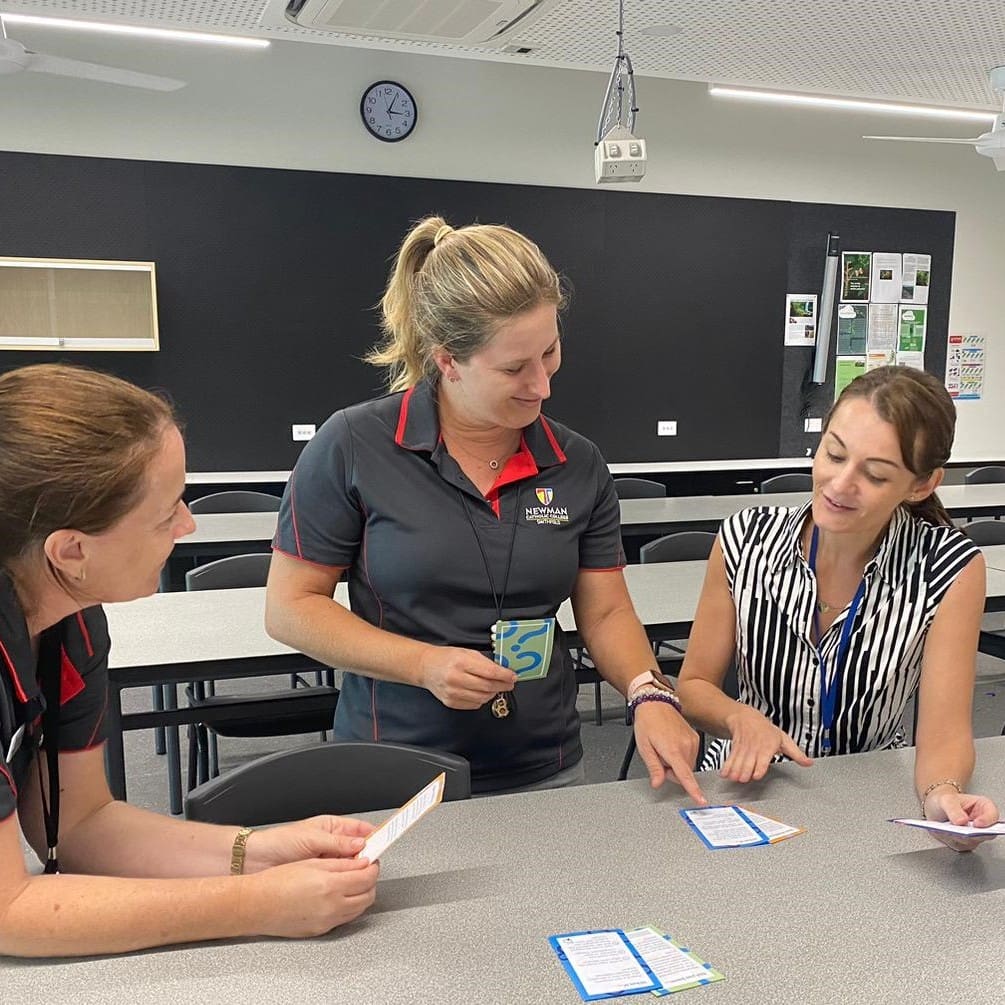
School Workshop 2
“Test run for our card set”
The 4 distinct categories, playful graphics and easy to read font were very warmly received. Instantly our educators were attracted to these prompts, and found them very relatable to their everyday challenges and issues. The factual prompts – “Did You Know” – ignited discussions immediately, a much more engaging outcome than before! Teachers naturally begun comparing their answers and thoughts on spatial prompts – “Imagine You Are” series, which over time, can then inform and transform into design conversations.
